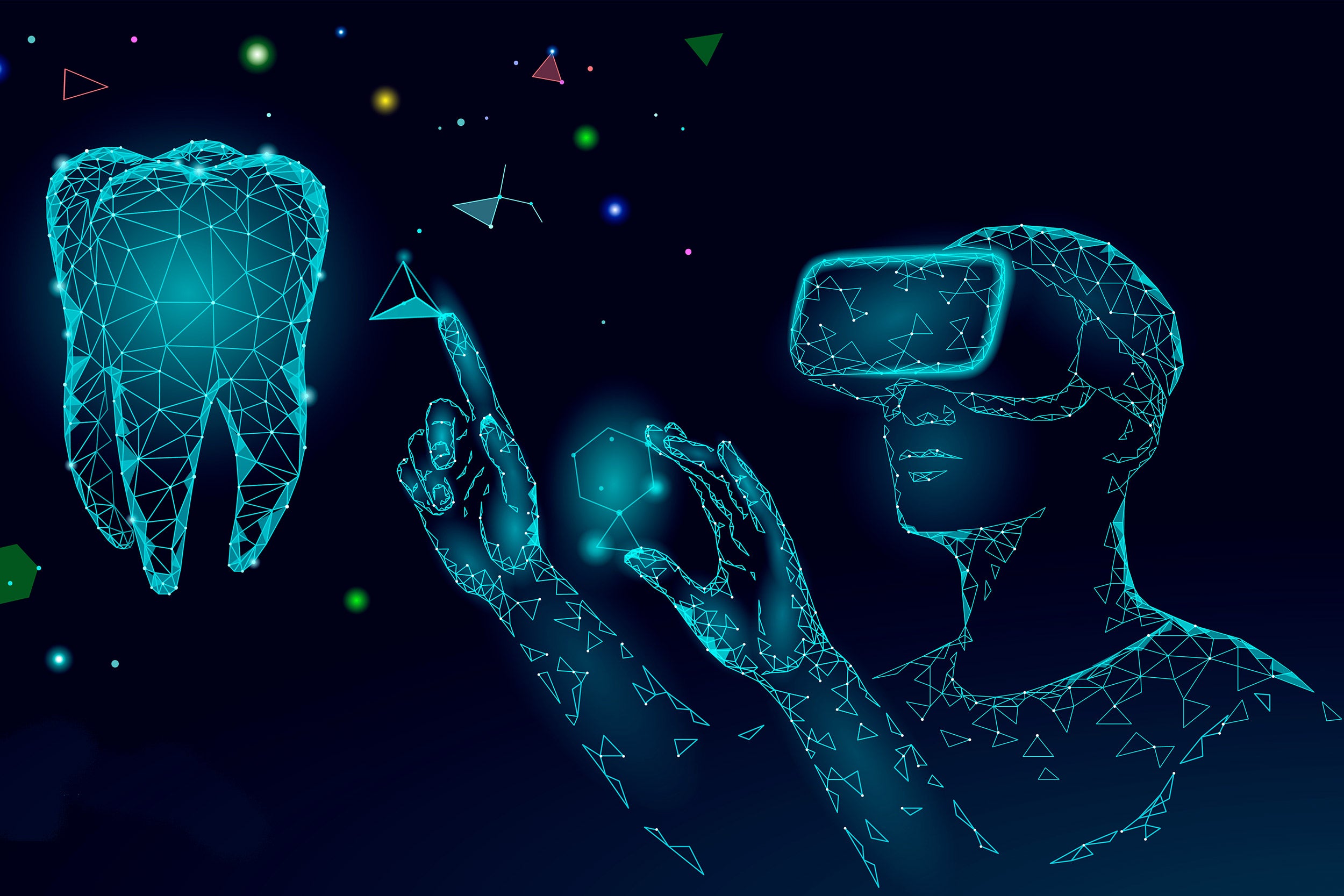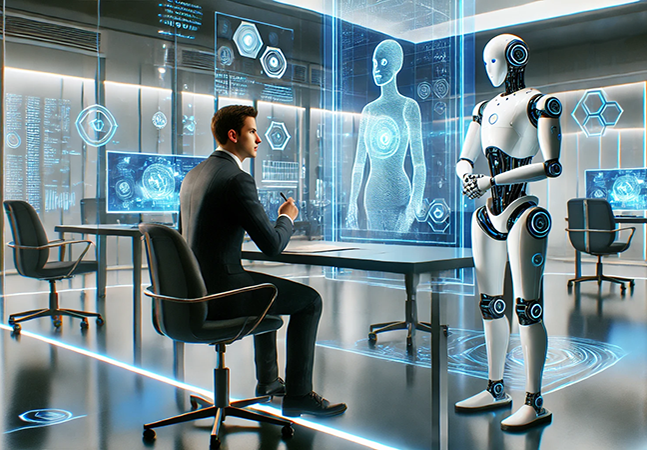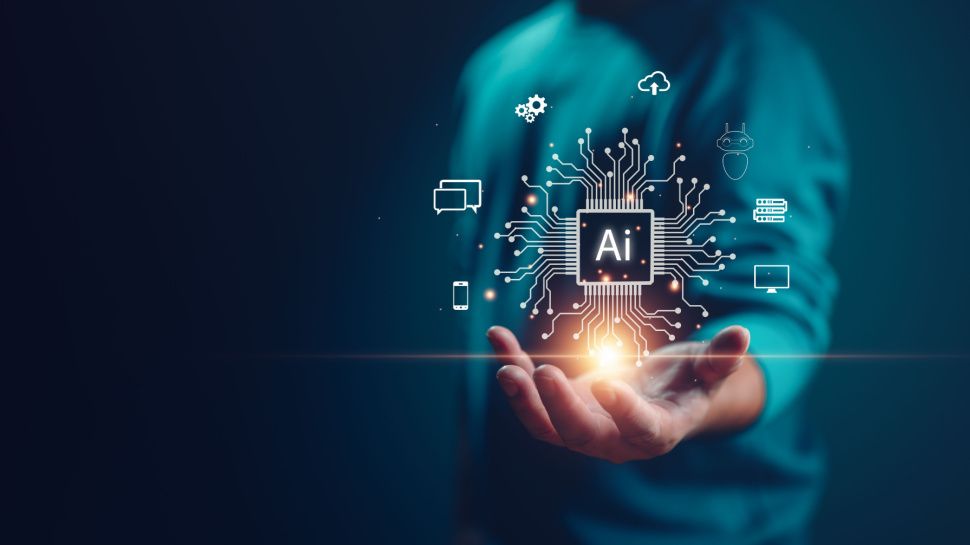
Dental practices, dental colleges, oral well being researchers, and policymakers are quickly positioning themselves to evolve in line with the dawning AI motion in oral healthcare, say AI and dentistry consultants, who shared their insights at the inaugural Global Symposium on AI & Dentistry at Harvard, Nov. 3-4.
“AI holds the promise of reworking the means we follow oral healthcare, pinpoint and deal with ailments and situations, and improve equitable entry to care and remedy,” stated William Giannobile, dean of Harvard School of Dental Medicine, throughout his opening remarks.
Three hundred attendees from 30 nations joined the symposium in individual, with one other 120 tuning in nearly. More than 65 analysis tasks have been offered, that includes a variety of system prototypes, patient-facing smartphone apps, and different applied sciences below improvement at the intersection of AI and dentistry.
Harnessing AI to handle limitations in oral healthcare
For greater than 40 years, researchers have been experimenting with methods to use AI to dentistry, stated Florian Hillen, founder and CEO of VideaHealth, a dental imaging startup launched from AI analysis performed at Harvard and MIT. Within the final decade, AI capabilities have lastly reached important mass.
“AI-powered instruments are actually serving to dentists establish dental decay in sufferers as much as 5 years earlier … the tech revolution is occurring,” he stated.
Beyond alternatives to enhance outcomes for particular person sufferers, researchers are shortly seizing AI to assist clear up population-level well being challenges. But for AI to successfully sort out large-scale issues, academia and trade should dissolve the boundaries between totally different scientific disciplines, stated Dimitris Bertsimas of Massachusetts Institute of Technology, one in every of the symposium’s keynote audio system.
“AI-powered instruments are actually serving to dentists establish dental decay in sufferers as much as 5 years earlier … the tech revolution is occurring.”
— Florian Hillen, founder and CEO of VideaHealth
“Real-world issues should not have [clear-cut] labels — international warming will not be just physics, or engineering, or arithmetic. Medicine will not be just biology, chemistry, or pc science,” stated Bertsimas, the Boeing Professor of Operations Research and affiliate dean of enterprise analytics at MIT. “Multimodal knowledge will more and more be used throughout science, engineering, and drugs, and [AI] will develop into the predominant methodology for predictions and decision-making throughout all fields.”
At Harvard, cross-disciplinary groups are leveraging machine studying to establish sufferers whose social determinants of well being put them extra immediately in the path of climate-change-related impacts and a bevy of different dangers to oral well being.
“Are exposures to wildfires impacting oral well being? If they develop into extra frequent, who’s most weak and the way can we act on this data?” requested Francesca Dominici, director of the Harvard Data Science Initiative at the T.H. Chan School of Public Health.
She and a group of researchers are utilizing AI to research satellite tv for pc knowledge, atmospheric chemistry fashions, and different components, revealing which communities are most affected by more and more frequent wildfires, excessive warmth waves, and harmful storms. Reduced air high quality from fires and better temperatures from warming local weather may cause mouths to be drier, making folks extra liable to oral illness and tooth decay. Increased psychological stress from excessive climate occasions can improve danger for tooth grinding and temporomandibular joint (TMJ) issues.
What’s extra, “pure disasters can disrupt entry to dental amenities and care,” Dominici added.
Augmenting — not changing — human data
Biomedical researchers are additionally deploying AI to hurry up and optimize experiments, therapeutic discovery, and preclinical validation. “[AI is] producing, buying, harmonizing, and refining knowledge, and it might generate hypotheses, in addition to simulate experiments and downstream outcomes,” stated Marinka Zitnik, an assistant professor of biomedical informatics at Harvard Medical School.
It will revolutionize the means therapies are matched individually to sufferers, she stated, and assist design totally new medication and therapeutics. A survey of 1,600 biomedical researchers revealed that 25 % of them really feel AI will be important to their research inside the decade, Zitnik added.
She makes a speciality of constructing data graph AI fashions, which assist contextualize and seize relationships inside numerous units of biomedical knowledge. Her group has developed a data graph AI mannequin referred to as TxGNN that describes 17,000 ailments utilizing all accessible medical and biomedical knowledge. Once skilled, it is going to be capable of predict how nicely any given therapeutic may successfully deal with a affected person’s distinctive illness, and even be capable of suggest new makes use of for FDA-approved medicines.
Participants used VR headsets to view a digital dental follow in the workshop “The Future is Now — Innovate with Advanced AI.”
Photo by Steve Gilbert
On the trade aspect of dental care, two main kinds of AI-assistive applied sciences are already making waves in dentists’ places of work: platforms for sufferers, suppliers, and payers that concentrate on utilizing AI to interpret and analyze imaging, and AI software program that automates affected person engagement, scheduling, and different time-consuming “again workplace” duties for dental practices.
“AI [products] on the market at this time are usually not decision-makers, they’re helpers,” stated Philippe Salah, co-founder and CEO of DentalMonitoring.
Dental AI instruments embody merchandise that enable dentists to remotely analyze patient-submitted oral photographs submitted through smartphone. Imaging instruments use AI to information sufferers as they seize photos of their tooth, after which can detect indicators of declining oral well being to flag for the dental care group. AI-guided 3D simulations of sufferers’ mouths assist orthodontists speed up the fittings and transition between bracers, aligners, and retainers. Some instruments even allow sufferers to see AI-powered, life-like simulations of how their tooth, mouths, and faces will take care of dental work or braces.
“One of the largest frustrations in my follow was understanding what my sufferers wanted, however not having the instruments or potential to speak that in a means [that inspired my patients to] prioritize their dental care,” stated Edward Zuckerberg, who owns a personal follow and is the chief dental officer at each Keystone Bio and Viome.
When AI and excessive stakes collide
Although the upsides of AI are undoubtedly thrilling, consultants at the intersection of AI and dentistry agree that with progress should additionally come prudence.
“I’m enthusiastic about the abundance of AI options [we’re talking about] right here,” stated Mariya Filipova, chief know-how officer at CareQuest Innovation Partners. But, she cautioned, AI will not be good at empathy, creativity, or creativeness — all uniquely human components which can be important to fixing issues ethically. New applied sciences are sometimes put into play earlier than pointers and coverage have caught up.
While an increasing number of AI dental platforms are being cleared by the FDA for business entry, that course of “doesn’t regulate equity and bias,” stated Hawazin Elani, assistant professor of oral well being coverage and epidemiology at the Dental School. “We should personal the place our knowledge [that’s training AI systems] is coming from.”
Fernanda Viégas, a keynote speaker at the symposium, warned that healthcare suppliers mustn’t should put blind religion in AI decision-making.
Viégas, a principal scientist at Google and the Gordon McKay Professor of Computer Science at Harvard’s John A. Paulson School of Engineering and Applied Sciences, and her collaborators at Google have discovered that clinicians usually tend to undertake AI instruments that don’t spit out automated outcomes with out sharing particulars about its analytic framework or the baseline knowledge on which the system was skilled.
“In high-stakes conditions” like making the right prognosis for a affected person, Viégas stated, “[we found] having the ability to interact with [AI] techniques at significant ranges mattered so much” to healthcare suppliers. “It touches upon the want for belief, confidence, transparency… and these are all actually exhausting issues to perform [in an AI system]. As we begin to deploy new [technologies], we’ll discover these gaps [in user experience] that we have to design for.”
https://news.harvard.edu/gazette/story/2023/11/harvard-symposium-looks-at-ai-and-oral-health/




